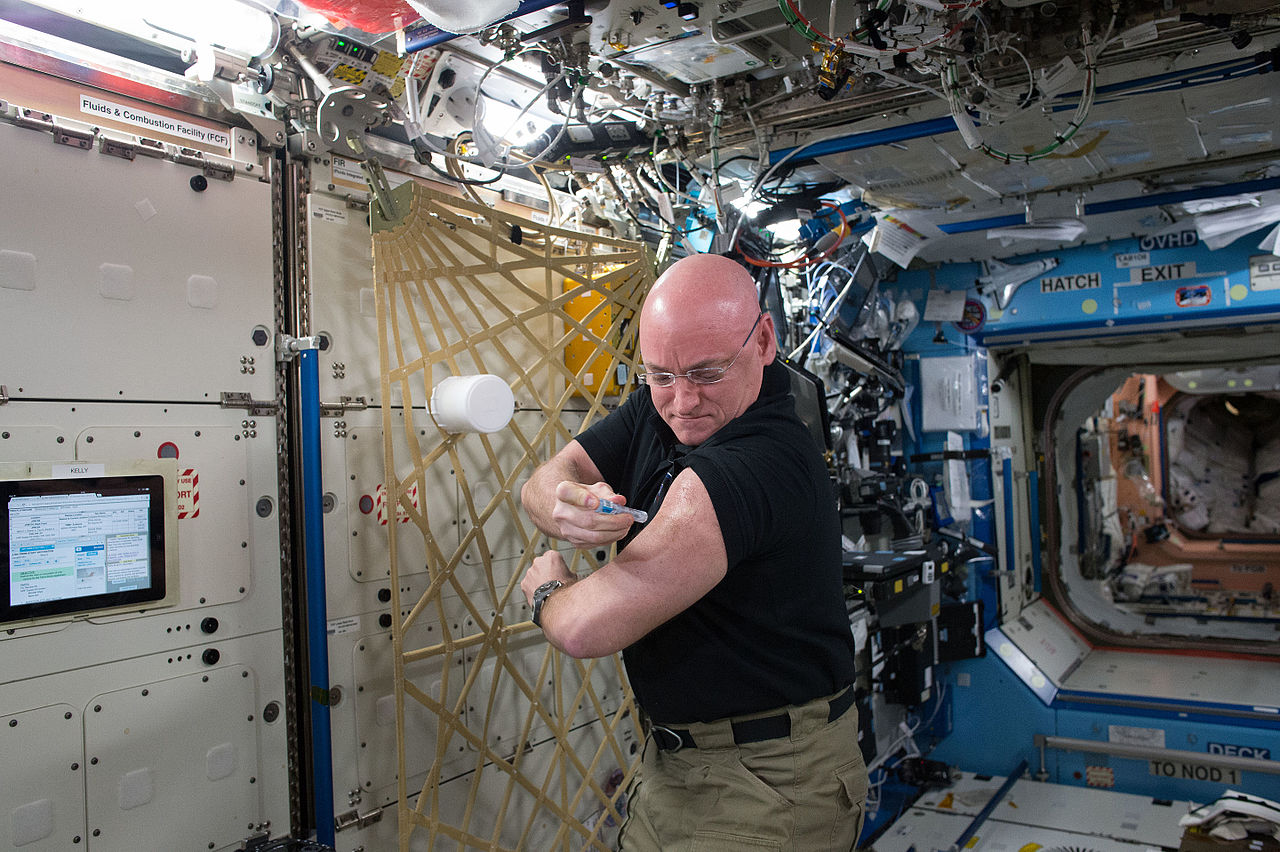Right now, there are several initiatives both public and private that have to do with going to space or colonizing another planet. Regardless of the reasons for doing so, one of the biggest obstacles to actually developing methods of long-term habitation outside of earth is the matter of unknown changes to the body. A good example is how it has been proven that even a few months of living in space is enough to change humans at the genetic level.
There are have been numerous studies related to the changes that astronauts experience during extended missions in space. One of these studies involved twin subjects Mark and Scott Kelley who participated in a research where one spent months in space while the other stayed on earth, Futurism reports. After the period was up, scientists then compared their bodies to see what changed.
Since the twins shared genetic similarities that were the closest humans could possibly get, they were the perfect subjects to test for genetic variance and the effects of spending too much time in space. The scientists noticed several key differences between the twins’ chromosomes, bacterial presence, and even their DNA.
This is just the beginning, however, as the case of the twins is too small a sample to make any kind of solid conclusion. However, it does provide a good base for future research involving other astronauts.
As NASA also points out, there will be several stark changes in the body of humans if they stay too long in space. Among these changes is the loss of bone density thanks to the lower gravity and the reduced muscle strength.
All of these factors are going to come into play, especially for those going on the planned one-way trip to Mars in order to colonize it. Based on the evidence so far, it’s a fair bet that the volunteers will no longer be the same by the time they have achieved their goals.



 Is space worth the cost? Accounting experts say its value can’t be found in spreadsheets
Is space worth the cost? Accounting experts say its value can’t be found in spreadsheets  Eli Lilly’s Inluriyo Gains FDA Approval for Advanced Breast Cancer Treatment
Eli Lilly’s Inluriyo Gains FDA Approval for Advanced Breast Cancer Treatment  NASA Faces Major Workforce Reduction as 20% of Employees Prepare to Leave
NASA Faces Major Workforce Reduction as 20% of Employees Prepare to Leave  Trump Administration to Launch Autism Initiatives Targeting Acetaminophen Use and New Treatment Options
Trump Administration to Launch Autism Initiatives Targeting Acetaminophen Use and New Treatment Options  Lost in space: MethaneSat failed just as NZ was to take over mission control – here’s what we need to know now
Lost in space: MethaneSat failed just as NZ was to take over mission control – here’s what we need to know now  Tabletop particle accelerator could transform medicine and materials science
Tabletop particle accelerator could transform medicine and materials science  Neuren Pharmaceuticals Surges on U.S. Patent Win for Rare Disorder Drug
Neuren Pharmaceuticals Surges on U.S. Patent Win for Rare Disorder Drug  FDA Adds Fatal Risk Warning to J&J and Legend Biotech’s Carvykti Cancer Therapy
FDA Adds Fatal Risk Warning to J&J and Legend Biotech’s Carvykti Cancer Therapy  Trump Signs Executive Order to Boost AI Research in Childhood Cancer
Trump Signs Executive Order to Boost AI Research in Childhood Cancer  SpaceX Prioritizes Moon Mission Before Mars as Starship Development Accelerates
SpaceX Prioritizes Moon Mission Before Mars as Starship Development Accelerates  SpaceX’s Starship Completes 11th Test Flight, Paving Way for Moon and Mars Missions
SpaceX’s Starship Completes 11th Test Flight, Paving Way for Moon and Mars Missions  NASA Astronauts Wilmore and Williams Recover After Boeing Starliner Delay
NASA Astronauts Wilmore and Williams Recover After Boeing Starliner Delay  Neuralink Plans High-Volume Brain Implant Production and Fully Automated Surgery by 2026
Neuralink Plans High-Volume Brain Implant Production and Fully Automated Surgery by 2026  Cogent Biosciences Soars 120% on Breakthrough Phase 3 Results for Bezuclastinib in GIST Treatment
Cogent Biosciences Soars 120% on Breakthrough Phase 3 Results for Bezuclastinib in GIST Treatment 































